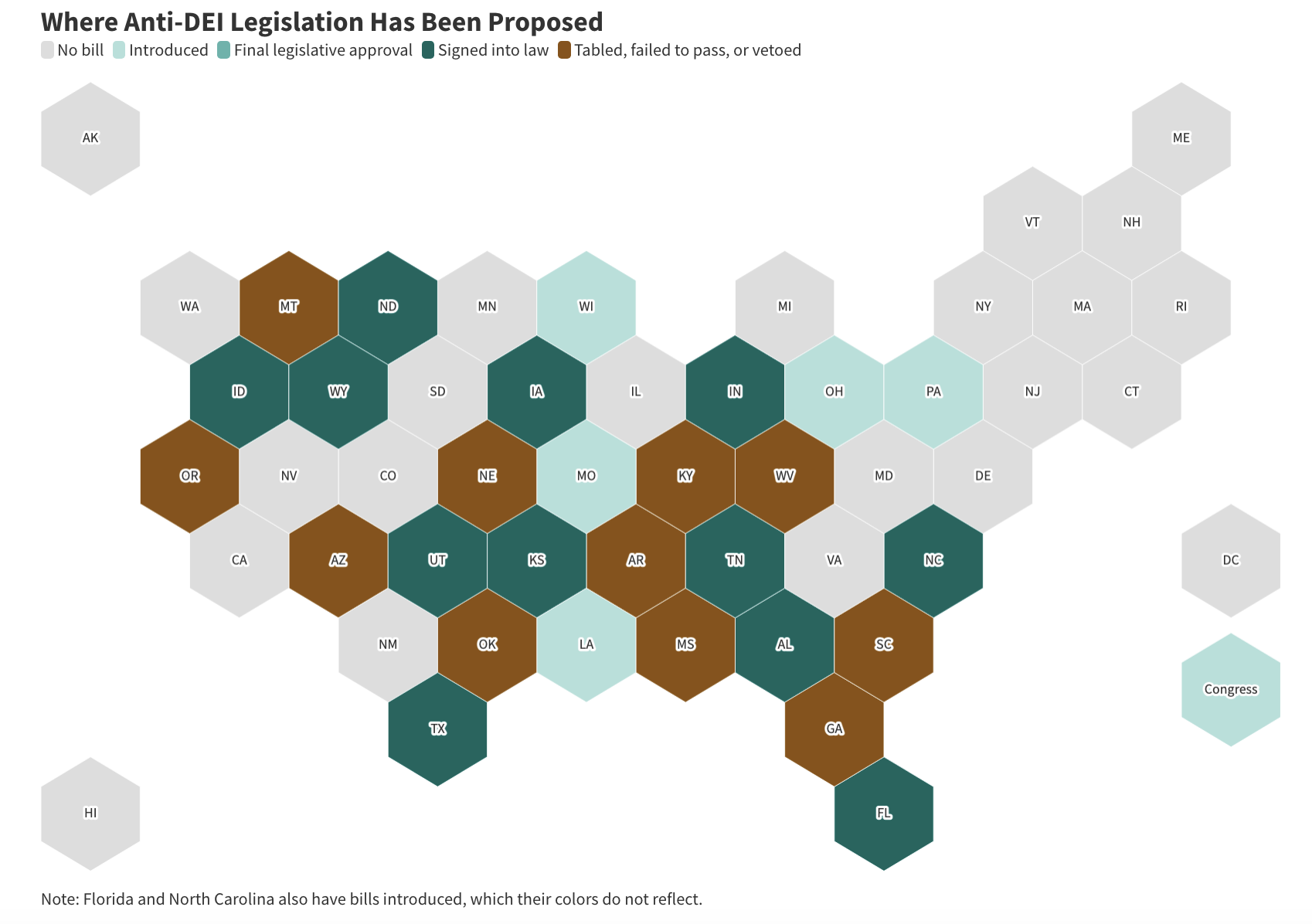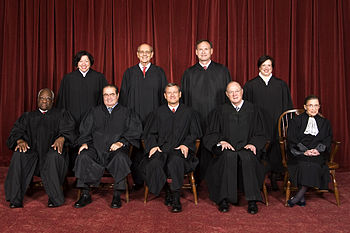The first Black person to ever receive a college degree was John Chavis, from what is today known as Washington and Lee University in Lexington, Va. He studied ministry, graduated with honors in 1799 and went on to become a preacher licensed by the Presbyterian Church. However, he was forced out of his job after his home state of North Carolina made it illegal for African-Americans to obtain higher education or to preach in public.
History may be on the road to repeating itself as restrictions on Affirmative Action extend throughout the nation, leaving many students of color alone in classrooms after the 2023 ruling.
On June 29, 2023, the admissions programs at both Harvard College and the University of North Carolina (UNC) were taken to court by Students for Fair Admissions, Inc. (SFFA) in the SFFA v. President and Fellows of Harvard College and SFFA v. UNC cases. Both colleges were ruled to be in violation of the 14th Amendment guarantee of equal treatment under American law.
The court justified its decision in part due to the school’s use of race in multiple stages of its admissions process. The school had shown preferences toward certain applicants to increase diversity, which was deemed the “Harvard Plan” by Justice Lewis F. Powell Jr in 1978. At the time, the Harvard Plan for admission was seen as a model for other colleges.
However, after last year’s ruling, that is no longer the case. The court’s decision has triggered a chain reaction of attack on diversity, equity, and inclusion (DEI) initiatives across the nation on college campuses and even in companies.
These attacks have been eliminating DEI offices and staff, mandatory DEI training, diversity statements and identity-based preferences for hiring and admissions. The Chronicle of Higher Education has been tracking the 86 anti-DEI pieces of legislation introduced across the nation in higher education. According to the Chronicle’s data, 14 final legislative approval and 14 have become law, while 54 have been “tabled, failed to pass, or vetoed.”
Companies with a larger conservative clientele such as Tractor Supply have been reducing their DEI involvement. Their decision came after weeks of backlash for their support and involvement in DEI events such as pride festivals, going so far as to even exclude their companies’ data from the Human Rights Campaign,
These decisions effectively challenge and have even reversed years of progress for many minority groups seeking to achieve a higher level of education. However, despite this ruling occurring at a federal level, Las Positas College (LPC) has taken a stance different from that of aforementioned colleges and is working to expand its outreach to students.
LPC’s mission statement says that the school provides an inclusive, learning-centered, equity-focused environment. Directly under the LPC statement is a section further defining what inclusivity means to the college.
“Inclusive — welcoming of a diverse group of students including but not limited to: all race-ethnicity groups, all ages, all genders, lesbian, gay, bisexual, transgender+, first generation, students with disabilities, veterans, students with children, all socio-economic backgrounds, including those from economically disadvantaged backgrounds, undocumented, international, multicultural, religious beliefs and practices—all with varying skill levels and learning styles.”
In order to achieve this, LPC has created a Student Equity & Achievement Committee (SEA) dedicated to supporting minority communities at the college. This includes an equity statement provided on their Sept. 19 meeting agenda that stated the committee’s dedication to making high-quality education that takes into account the diversity of their students.
One of the ways they are moving towards this goal is by working on a new position for the staff: Dean of Special Programs, Equity and Students. This position will take on some of the responsibilities currently done by the Dean of Student Services, Joel Gagnon, allowing for more focus on the areas that will be covered by the position..
Although LPC has maintained its commitment to its mission statement, nothing comes without problems. With the recent closing of the bookstore, LPC as a whole is currently in a spending deficit which has made funding a pressing issue. Previously, the SEA budget was 2.5 million, but all of the funding is being used for salary and benefits.
In a SEA committee meeting on Sept. 19, members discussed the budget which left only $677,000 available for their use. The money that is currently available is being taken from the rollover of the previous year’s budget — which they have already begun spreading to various programs and events across campus including various heritage month celebrations, One Love and the Hindi Festival of Lights.
SEA does not only focus on events that bring attention to minority groups on campus and programs to better student life. It also takes enrollment into account. Currently, the committee is focusing on improving the enrollment and retention rates of Black and African American students, with a goal to increase successful enrollment by 5% in the next three years.
TOP ILLUSTRATION: The protections made to make opportunity an even race are in danger of being erased. (Art by Mel Llamas/ The Express)
Mel Llamas is a staff writer for The Express. Follow him on X, formally Twitter, @MM_Llamas





